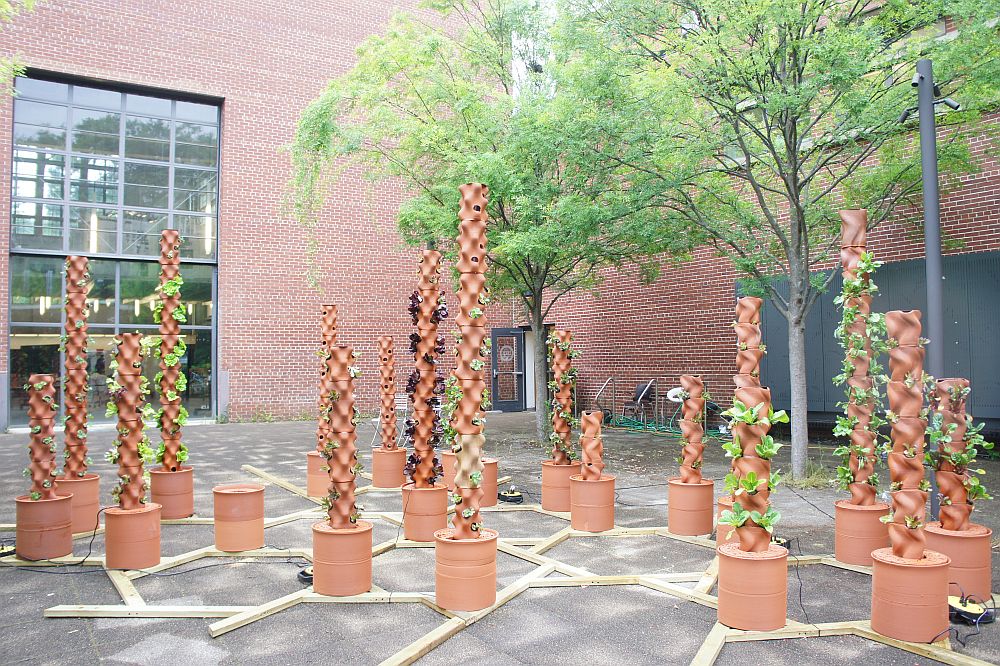
[Image above] Could this cement plant in Norway become the first full-scale carbon capture and storage facility for cement production? Credit: akersolutions, YouTube
Cement’s reputation has taken a beating over the past few years. Since a 2018 report by the International Energy Agency and the Cement Sustainability Initiative showed the cement sector accounts for about 7% of global carbon dioxide emissions, numerous media outlets have lambasted the cement industry for its destructive impact.
What some of these media outlets overlook, however, is that the cement industry is actively pursuing numerous ways to mitigate their emissions, including replacing Portland cement in concrete with other materials and developing new techniques of concrete production.
Another method for reducing emissions in cement production is carbon capture and storage (CCS).
“CCS is a combination of technologies designed to prevent the release of CO2 generated through conventional power generation and industrial production processes by injecting the CO2 in suitable underground storage reservoirs,” an article on the United Nation’s Climate Technology Centre & Network website explains. “Basically, capture technology separates CO2 emissions from the process, after which the compressed CO2 is transported to a suitable geological storage location and injected.”
CCS is not yet proven in cement production at the industrial scale. However, many studies are underway to investigate the technology’s feasibility, and one study in Norway looks particularly promising.
Norcem: Pursuing the world’s first full-scale CCS facility
Norcem is a Norwegian manufacturer of cement and subsidiary of HeidelbergCement, one of the largest building materials companies in the world. According to Norcem’s website, the company is the sole producer of cement in Norway, with plants in Brevik (south) and Kjøpsvik (north).
In July 2016, a feasibility study by the Norwegian government showed CO2 capture was technically possible at three industrial emission sites in Norway, including Norcem’s Brevik site. The Norwegian Parliament approved the revised national budget for the second half of 2018 to include funding for Norcem to begin advanced planning studies.
In 2017, Norcem contracted with Aker Solutions to pursue the advanced planning studies. Aker Solutions is an engineering company based in Oslo, Norway, and the company previously carried out extensive testing with a pilot capture plant at Norcem’s Brevik site. The results were so promising that Norcem selected Aker Solutions’ carbon capture technology for the advanced planning studies.
A Norcem video from 2018 explains step-by-step the design of the carbon capture plant.

Credit: Norcem, YouTube
Aker Solutions now has tested its technology at Norcem’s Brevik site for 18 months, and “the promising results from the pilot testing give us confidence that realization of the full-scale capture plant will be successful,” Per Brevik, director of sustainability and alternative fuels at HeidelbergCement Northern Europe, says in an Aker Solutions press release. What’s more, the Aker CCS process was certified by DNV GL, a quality assurance company and technical advisor to the oil and gas industry.
This summer, the CCS setup at Brevik will undergo a review by Gassnova, the Norwegian state enterprise for carbon capture and storage. If the technology wins government approval and funding, construction on the full-scale facility could start in January 2021.
If the Brevik plant goes ahead, “half of the CO2 emissions trapped by the Aker equipment will be shipped to the Norwegian coast, where it will be pumped in a pipeline to a storage well being developed 2,500 m below the North Sea bed at the Troll gas field, some 65 km off Bergen,” an Engineering News-Record article explains. It is expected that up to 400,000 tonnes of CO2 could be captured and stored each year.
Norcem is not the only subsidiary of HeidelbergCement pursuing CCS. Lehigh Cement Company, a leading producer of bulk and bagged cement in North America, also launched a feasibility study on a full-scale CCS project at its plant in Edmonton, Alberta, Canada. The $3-million study, which is partly funded by the Canadian government, is set for completion late this year.
Author
Lisa McDonald
CTT Categories
- Cement
- Environment


